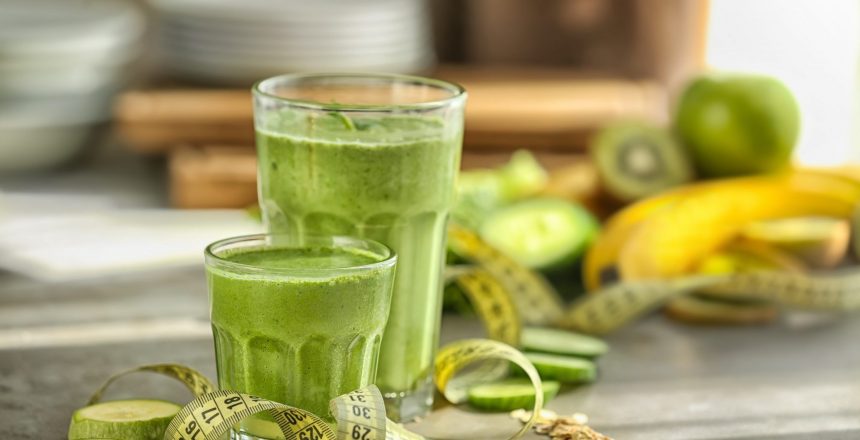Juicing has gained significant popularity in recent years as a means to lose weight and improve overall health. With claims of detoxification, increased energy levels, and rapid weight loss, many people are turning to juicing as a quick fix for shedding unwanted pounds. But does juicing actually help you lose weight? In this comprehensive guide, we will delve into the topic and explore the potential benefits and drawbacks of juicing for weight loss.
Understanding Juicing:
Juicing involves extracting the liquid content from fruits and vegetables while discarding the fiber. This process is typically done using a juicer machine. The resulting juice is rich in vitamins, minerals, and antioxidants, making it a popular choice for those seeking a nutrient boost. Juices can be made from a variety of fruits and vegetables, including kale, spinach, apples, carrots, and more.
The Benefits of Juicing:
- Nutrient Intake: Juicing allows you to consume a concentrated amount of nutrients from fruits and vegetables in an easily digestible form. This can be especially beneficial for individuals who struggle to meet their recommended daily intake of fruits and vegetables.
- Hydration: Juices are an excellent source of hydration, as they contain high water content. Staying hydrated is important for weight loss, as it can help suppress appetite and boost metabolism.
- Detoxification: Some proponents of juicing claim that it helps detoxify the body by eliminating toxins. However, it’s important to note that the human body already has an efficient detoxification system in place, primarily through the liver and kidneys.
The Drawbacks of Juicing:
- Lack of Fiber: One of the main drawbacks of juicing is the removal of fiber during the extraction process. Fiber plays a crucial role in digestion, promoting satiety, regulating blood sugar levels, and maintaining a healthy gut. Without fiber, juices can lead to a spike in blood sugar levels and may not keep you feeling full for long.
- Calorie Intake: Juices, especially those made primarily from fruits, can be high in calories. Consuming large quantities of fruit-based juices without considering the calorie content can hinder weight loss efforts, as they may contribute to a calorie surplus.
- Nutrient Imbalance: While juicing provides a concentrated dose of vitamins and minerals, it can lack other essential nutrients such as protein and healthy fats. A well-balanced diet is necessary for overall health and sustained weight loss, so relying solely on juices may lead to nutrient deficiencies.
How Juicing Can Aid Weight Loss:
- Calorie Restriction: Juicing can be an effective way to reduce calorie intake, especially if you replace high-calorie meals or snacks with low-calorie vegetable-based juices. By creating a calorie deficit, you can promote weight loss.
- Increased Vegetable Consumption: Juicing can encourage the consumption of a wider variety of vegetables. Vegetables are low in calories and high in nutrients, making them an excellent choice for weight loss. Including a diverse range of vegetables in your juices can help provide essential vitamins and minerals while keeping calories in check.
- Meal Replacement: Some individuals use juicing as a temporary meal replacement strategy. While this can lead to initial weight loss, it is important to ensure that the juices contain a balance of nutrients and are not used as a long-term solution.
Tips for Healthy Juicing and Weight Loss:
- Focus on Vegetables: Opt for vegetable-based juices over fruit-based ones to keep the calorie content lower. Aim for a variety of colorful vegetables to maximize nutrient intake.
- Include Protein and Healthy Fats: Consider adding ingredients such as Greek yogurt, nuts, seeds, or avocado to your juices to enhance satiety and provide essential nutrients.
- Practice Portion Control: Be mindful of portion sizes when consuming juices, as they can still contribute to calorie intake. Moderation is key.
- Combine Juicing with a Balanced Diet: Juicing should not be the sole source of nutrition. Incorporate whole foods into your diet, including lean proteins, whole grains, and healthy fats, to ensure a well-rounded and sustainable approach to weight loss.
- Stay Active: Remember that physical activity plays a crucial role in weight loss. Pair your juicing efforts with regular exercise to maximize results.
Conclusion:
While juicing can be a convenient way to increase nutrient intake and aid in weight loss, it is important to approach it with caution. Juices should not replace a well-balanced diet and should be consumed in moderation. For sustainable weight loss, focus on overall dietary habits, portion control, and a combination of nutrient-rich whole foods and regular physical activity. Consult with a healthcare professional or registered dietitian for personalized advice and guidance on incorporating juicing into your weight loss journey.
- Fizzy Fun: Exploring Melo THC Beverages! - April 22, 2024
- Exploring Jaw Slimming Techniques: Insights from Dr. Laura Geige - April 1, 2024
- Lip Fillers, Botox, Dermal Fillers, Anti-Wrinkle Injections in Arkley EN5 - March 22, 2024




